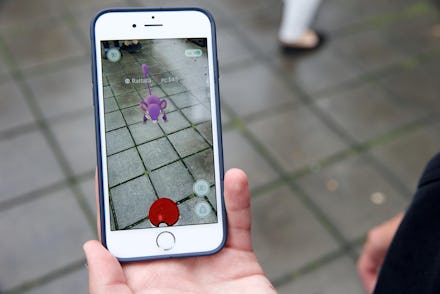New York Sex Offenders Are Now Banned From 'Pokémon Go.' Here's Why That's a Bad Idea.

There is perhaps no group of people more universally despised than sex offenders. If you have been convicted as a sex offender in the United States, in many states you're not permitted to vote, work where you want, or live within 1000 feet of a school. And now, in New York state, thanks to a directive by Gov. Andrew Cuomo, sex offenders are no longer allowed to play Pokémon Go, either.
On Monday, Cuomo directed the New York State Department of Corrections and Community Supervision to ban sex offenders on parole from playing the augmented reality game, which allows users to capture Pokémon throughout their cities. Cuomo also requested that New York's criminal justice department share data from the sex offender registry with Niantic Labs, the makers of Pokémon Go, thus releasing the personal data of nearly 3,000 men and women on the list.
The move to ban sex offenders from Pokémon Go was ostensibly inspired by an investigation by two state senators, which found that there were more than 70 Pokémon, Pokéstops or Pokégyms in close proximity of sex offenders' residences.
New York state Sen. Jeff Klein interpreted the results of the investigation as a sign that sex offenders were using the game as an opportunity to ensnare unwitting victims. "While children believe they are out to catch a Pokémon, what might really be lurking could be a predator instead of a Pikachu," Klein said in a panic-stricken press release.
Contrary to Klein's breathlessly alliterative warning, there is no evidence that registered sex offenders are using the game as a front for molesting children. At press time, there have been a grand total of zero reports of Pokémon Go-playing children being abused by sexual predators as a result of playing the game (there have, however, been reports of parents being arrested for child abuse after leaving their house to play Pokémon Go).
Furthermore, previous research about sex offenders suggests that the vast majority of such crimes aren't committed by strangers, thus implying that barring sex offenders from playing Pokémon Go wouldn't actually do much to curb the child sex abuse rate.
According to statistics from the Rape and Incest National Network, 93% of juvenile sex abuse victims knew their abusers beforehand, while only 7% of juvenile sex abuse victims were abused by a total stranger. First-time offenders commit 95% of sex crimes, and they wouldn't be on the registry in the first place. In fact, even for sex offenders who are on the registry, the recidivism rate is relatively low — about 5.3% of white males and 5.6% of black males, according to one study.
It's also worth noting that while the sex offender registry does serve its ostensible purpose of warning parents if they live near violent offenders, many sex offenders arguably don't have any business being on the registry to begin with. The crimes committed by those on the registry are fairly wide-ranging, from actual child rape to the far more innocuous indecent exposure, or for being a teenager having consensual sex with another teenager. Yet due to the permanent and highly public nature of the registry, one could easily find themselves being labeled a sex offender for life, simply because they drunkenly peed on an empty playground at 1 a.m.
For these reasons, the sex offender registry has garnered harsh criticism from advocacy groups, who have fought for legal reform and to keep juvenile offenders off the registry. Clearly, however, it's much easier and more convenient for politicians and media outlets to feed the moral panic swirling around sex offenders by accusing them of using an augmented reality app as a child sex trap.
"Holding a press conference to announce that Pokémon Go turns kids into sitting ducks is worse than pointless grandstanding," sociology professor Emily Horowitz wrote in an op-ed for the New York Post. "It makes parents afraid — very afraid — of something that has never actually happened."
So rather than use sex offenders as a scapegoat for our longstanding fears of new technology, we might just be better off warning terrified grown-ups to supervise their kids while they're chasing Charmanders. On second thought, however, that would require telling people to use logic and responsible parenting instead of succumbing to their irrational fears, so maybe invoking images of mouth-breathing child rapists lurking around dark playgrounds is a safer bet.
Read more: